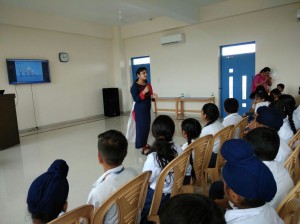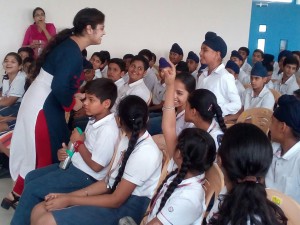“The oak fought the wind and was broken, the willow bent when it must and survived.” ~ Robert Jordan
Life doesn’t get easier or more forgiving, we get stronger and more resilient. Resilience starts at a tender age, where children learn to accept and learn from their failures, eventually moving towards a successful tomorrow. Therefore, the process of building a happy mind at this crucial stage, is of utmost importance.

In our endeavor to help adolescents establish a firm understanding of resilience and working towards enhancing the same; the Mind Research Foundation conducted an interactive session on resilience, with children of Oakridge International School, Mohali. The session was held on 22nd July, 2017, with the students of 8th, 9th and 10th class respectively.
The main ideas covered were:
• Resilience – a learned ability
• Why me? – Various social pressures
• Factors affecting resilience
• Mindset – Rigid v/s flexible
• Emotion management
• Key values for building strong, positive relationships
• Interactive activities – gratitude, happiness, self-esteem
• Mindfulness – bolstering coping mechanisms

The overarching aim of the session was to make children aware of the various capabilities intrinsic in them, so they could appreciate the meaning of “resilience” that is, bouncing back to life, in difficult times . The major objective was to increase awareness of various omnipresent socio-emotional pressures, such as peer pressure, social media, parental pressure; and how these pressures affect the person.
They were made to appreciate the beauty of mindfulness and optimism not only to handle extreme emotions but also how to be resilient and competent. This was achieved by using some fundamental exercises, such as appreciating oneself in the mirror, mindful breathing exercises and recognizing and managing the big emotions, and gratitude exercise.
The session ended with a positive feedback which was evinced by the genuine smiles on participants’ faces, an interactive question answer session and gratitude of the school authorities.
With respect to the prospective scope of mental health of youth in India, we feel that there is a burgeoning need to spread awareness on such topics.
